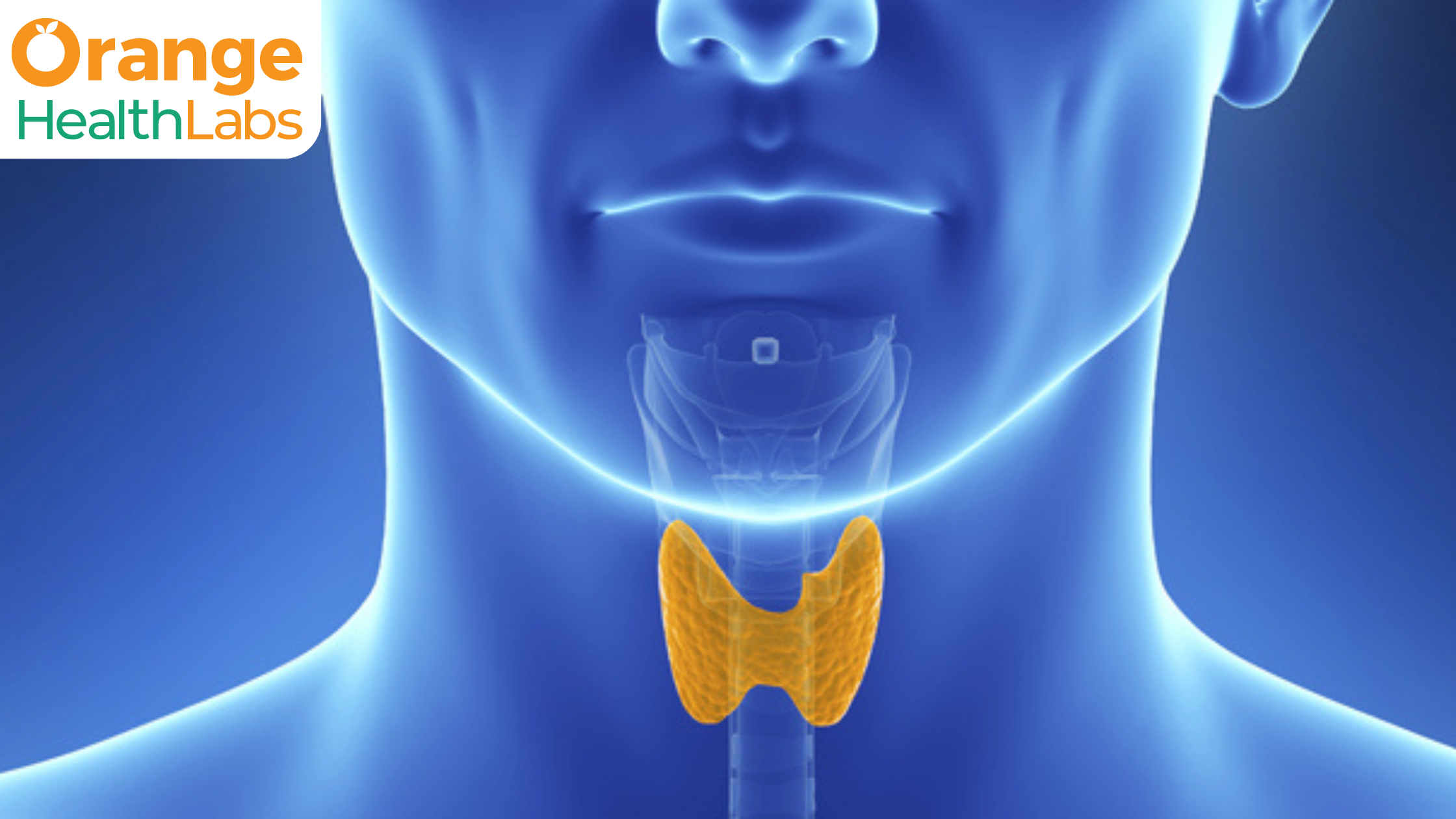Search for tests or checkups
SupportTop 5 Signs You Might Need Thyroid Function Test

The thyroid gland is a small butterfly-shaped gland in the lower part of your neck. It produces thyroid hormones which are responsible for regulating metabolism, growth, and energy levels in the body. Given the thyroid's pivotal role in maintaining numerous bodily functions, deviations from its normal activity can significantly impact overall health. Thyroid function tests are essential tools used to evaluate the health of the thyroid gland and diagnose thyroid-related disorders. Symptoms of thyroid dysfunction can often be non-specific or mistaken for other conditions, making it crucial to recognize key indicators that might warrant a thyroid function test. This blog explores the top five signs that could suggest the need for testing, aiding in early detection and management of thyroid disorders.
What is a Thyroid Function Test
Thyroid function test is a series of blood tests designed to measure the levels of thyroid hormones in the blood. These tests typically include:
Thyroid-Stimulating Hormone (TSH) Test
Measures the amount of TSH, a hormone produced by the pituitary gland that stimulates the thyroid gland to produce thyroid hormones. Abnormal levels can indicate an underactive (hypothyroidism) or overactive thyroid (hyperthyroidism).
Thyroxine (T4) Test
Assesses the amount of thyroxine (T4), the primary hormone produced by the thyroid gland. This test helps determine how well the thyroid gland is functioning.
Triiodothyronine (T3) Test
Evaluates the level of triiodothyronine (T3), another hormone produced by the thyroid. It is particularly useful in diagnosing hyperthyroidism or assessing thyroid function when TSH and T4 levels are inconclusive.
Top Signs You May Need a Thyroid Function Test
The balance of thyroid hormones in the body is often disrupted during thyroid disorders, leading to a range of symptoms that can affect physical and mental well-being. For those considering a thyroid function test at home, recognizing the signs that warrant testing can ensure timely and accurate diagnosis and management. Here, we discuss the key symptoms that may indicate the need for thyroid function tests.
1. Fluctuations in Mental Health
People with thyroid disorders often have emotional and mental health symptoms. Hyperthyroidism can cause anxiety, rapid mood swings, and restlessness, while hypothyroidism is commonly associated with symptoms of depression, lack of interest, and reduced mental alertness. Additionally, physical changes due to thyroid disorders such as weight gain and facial changes can further aggravate mental health symptoms.
2. Unexplained Weight Changes
Unintentional weight changes, whether loss or gain, can be indicative of thyroid abnormalities. The thyroid hormones play a vital role in regulating metabolism and energy use. Hyperthyroidism increases metabolic rate and calorie needs, resulting in weight loss if food intake does not match the excess calories burned. On the other hand, hypothyroidism slows down metabolism and can cause weight gain or difficulty losing weight.
3. Fatigue and Low Energy Levels
Chronic fatigue and low energy are common complaints among individuals with thyroid disorders. Hypothyroidism frequently leads to persistent fatigue, reduced physical energy, and a general sense of lethargy. Individuals may also experience muscle weakness and decreased endurance. Conversely, hyperthyroidism can cause sleeplessness and increased metabolism, which can result in exhaustion and fatigue despite seemingly adequate rest. When fatigue is severe and not linked to other conditions, thyroid function tests are recommended to determine if the fatigue is due to thyroid dysfunction.
4. Unusual Swelling in the Neck (Goiter)
A key indicator of thyroid problems is goiter – a noticeable swelling in the neck caused by an enlarged thyroid gland. Goiter may result from various thyroid conditions, such as thyroid nodules or lumps, iodine deficiency, inflammation of the thyroid, or autoimmune disorders (where the immune system attacks the thyroid gland and disrupts its function) such as Hashimoto’s thyroiditis or Graves' disease. This swelling can cause discomfort, difficulty swallowing, or breathing issues. The presence of goiter, whether symptomatic or asymptomatic, should prompt a thyroid function evaluation to determine the underlying cause.
5. Hair, Skin, and Nail Changes
Changes in hair, skin, and nails are quite common in thyroid disorders due to the effects of thyroid hormones on these tissues. For example:
- Hair: In hypothyroidism, hair may become dry, brittle, coarse, and slow growing. Some people may experience hair thinning or hair loss, particularly on the scalp and eyebrows. In hyperthyroidism, hair can become fine and soft, but hair loss may still occur.
- Skin: Hypothyroidism often causes skin to become dry, rough, and pale, with reduced sweating. In severe cases, the skin may thicken and appear swollen due to the buildup of certain substances. Hyperthyroidism, on the other hand, may cause the skin to feel warm, moist, and smooth due to increased blood flow. People with hyperthyroidism may also experience increased sweating.
- Nails: With hypothyroidism, nails may become thick, brittle, and slow growing. In hyperthyroidism, nails may be shiny, soft, develop a concave shape, and detach from the nail bed (onycholysis).
While the aforementioned symptoms are top signs that might necessitate a thyroid function test, it is important to recognize other potential signs that could also warrant further investigation. These include difficulty concentrating, memory issues, vision changes, bulging eyes, sensitivity to temperature changes, palpitations, muscle and joint pain, digestive issues like diarrhea or constipation, hoarseness of voice, and infertility.
Why Early Detection with Thyroid Function Test is Important?
Early detection of thyroid hormone imbalances can aid in prompt treatment and prevent the long-term effects of untreated thyroid disorders. Whether you're experiencing symptoms or seeking a routine check-up, getting a thyroid function test at Bangalore can provide critical insights into your thyroid health.
Understanding the Thyroid profile test price can help you plan investment that benefits your long-term health and well-being. Additionally, for those with busy schedules or limited mobility, a thyroid function test at home offers the convenience of testing without leaving the comfort of your home.
Also, book Thyroid Function Test from your city: Thyroid Function Test in Mumbai | Thyroid Function Test in Delhi | Thyroid Function Test in Hyderabad | Thyroid Function Test in Noida | Thyroid Function Test in Gurgaon
Recognizing the signs of thyroid dysfunction is essential for its early diagnosis and effective management. Regular thyroid function testing can help identify any imbalances before they escalate into more serious health issues. By addressing potential problems early, you can safeguard your overall health and ensure a better quality of life.

Gut Health: Comprehensive Analysis in Full Body Assessments

How Preventive Health Checkups Help You Save Tax in India?
